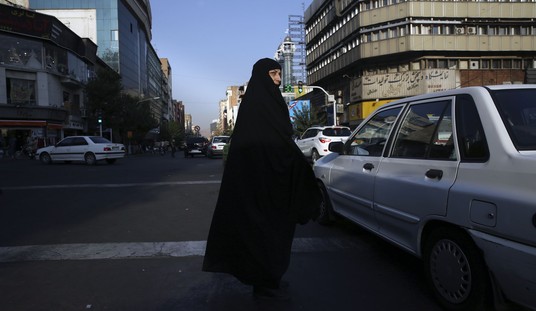While roving bands of eco-radicals expend their vociferous energies on doing anything and everything they can to thwart the construction of the Keystone XL pipeline win their successfully trumped-up and completely symbolic environmentalist battle, their misbegotten quest seems to ignore a burgeoning fact of the United States’ economy and energy infrastructure: Especially because of the still-growing oil-and-gas boom borne largely of hydraulic fracturing, the U.S. is going to need a lot more pipeline to cope with the increase in supply.
In terms of terrestrial transport, highly regulated pipelines are a good deal more safe, efficient, and environmentally friendly than the cars and trucks that have been in increasing use, and the current lack of pipeline is also leading to economic waste of natural gas. We need to start updating and expanding the 500,000 miles of interstate pipeline that already crisscross the continental United States, and preferably sooner than later. Via Brad Plumer:
The Energy Information Administration recently put out a report showing that U.S. transport of crude oil by rail, truck, and barge has soared by 57 percent between 2011 and 2012, surpassing 1 million barrels per day. Out in North Dakota, for instance, companies are now producing far more shale oil from the Bakken formation than existing pipelines can handle. …
In the most recent issue of Democracy, former White House energy adviser Jason Bordoff makes an extended argument that North America’s energy infrastructure has yet to catch up with growing oil and gas production in all sorts of ways. For instance, nearly one-third of the natural gas that’s produced in North Dakota is simply burned off, or “flared,” because there are no pipelines to bring it to market. (Unlike crude oil, natural gas usually can’t be shipped by truck or rail.)
What it is environmentalists think they’re going to accomplish in the long run if they succeed in killing the Keystone pipeline project, I’m not sure I’ll ever understand, but the highly selective attention is… interesting, to say the least. Via Alan Scherzagier at RCE:
A Canadian company’s plan to build an oil pipeline that will stretch for hundreds of miles through the Midwest, including through many sensitive waterways, is quietly on the fast-track to approval — just not the one you’re thinking of.
As the Keystone XL pipeline remains mired in the national debate over environmental safety and climate change, another company, Enbridge Inc. of Calgary, Alberta, is hoping to begin construction early next month on a 600-mile-long pipeline that would carry tar sands from Flanagan, Ill., about 100 miles southwest of Chicago, to the company’s terminal in Cushing, Okla. From there the company could move it through existing pipeline to Gulf Coast refineries.
The company is seeking an expedited permit review by the U.S. Army Corps of Engineers for its Flanagan South pipeline, which would run parallel to another Enbridge route already in place. Unlike the Keystone project, which crosses an international border and requires State Department approval, the proposed pipeline has attracted little public attention — including among property owners living near the planned route.








Join the conversation as a VIP Member